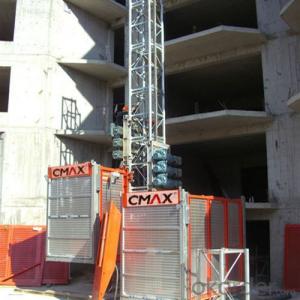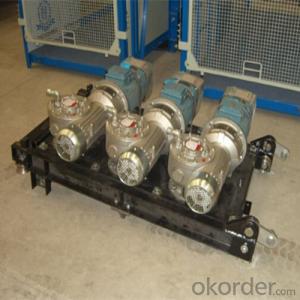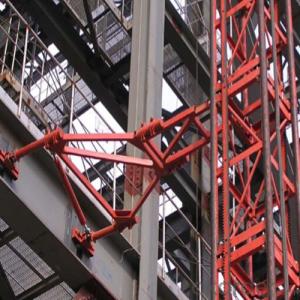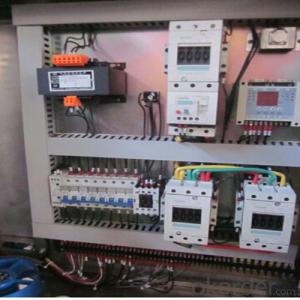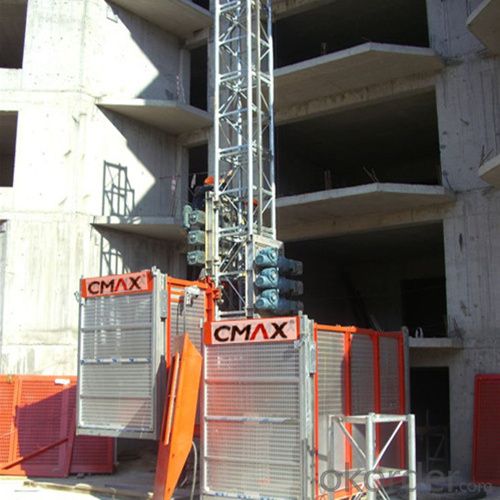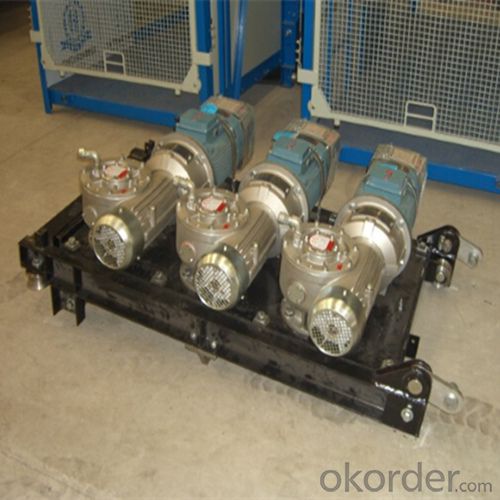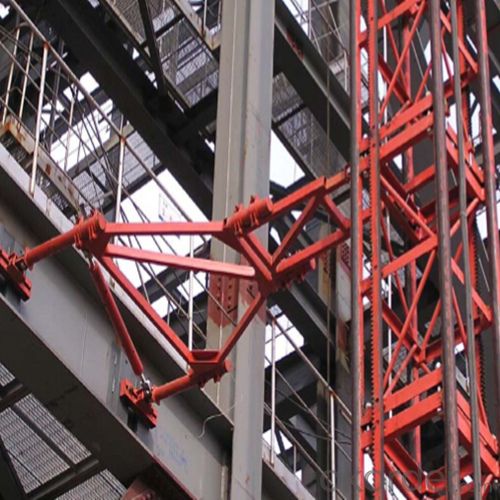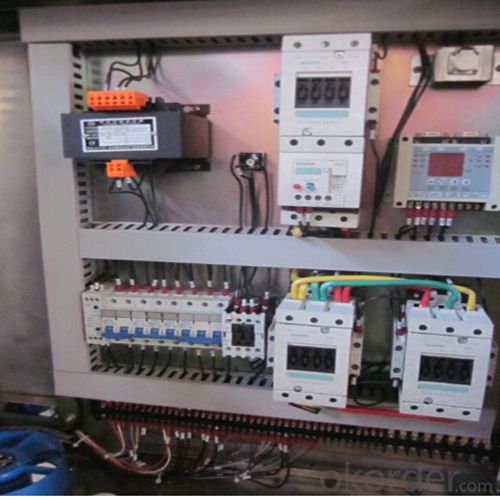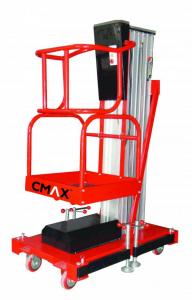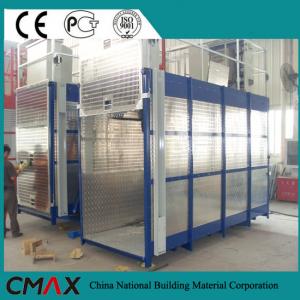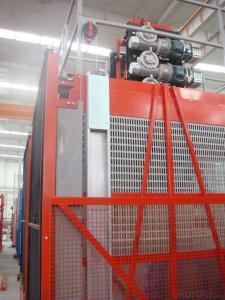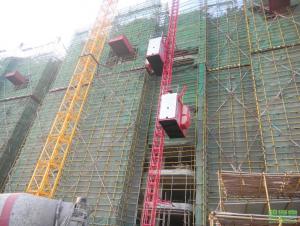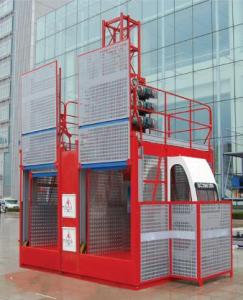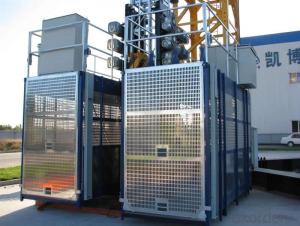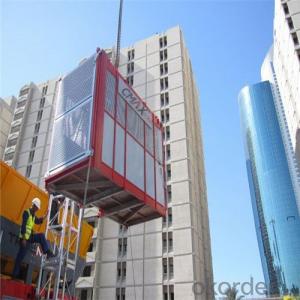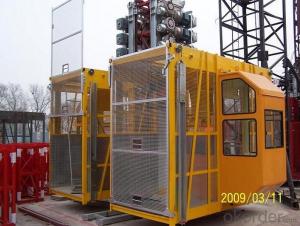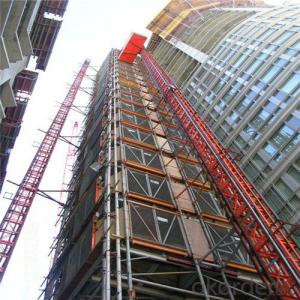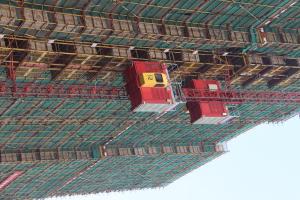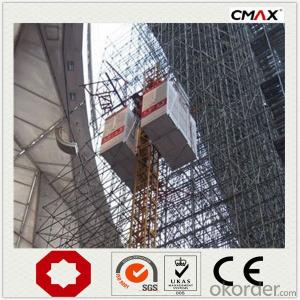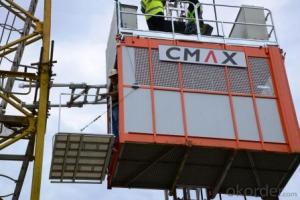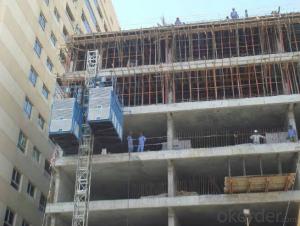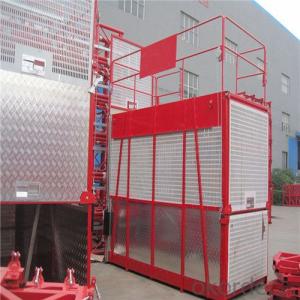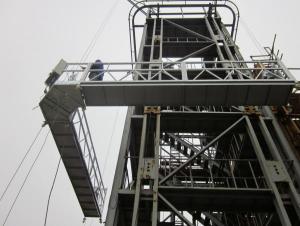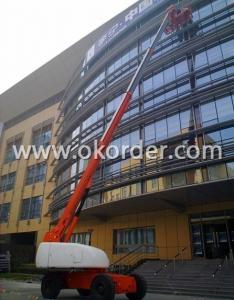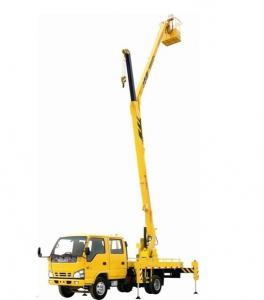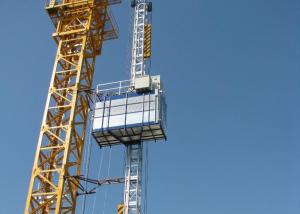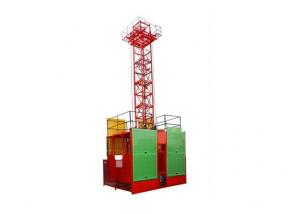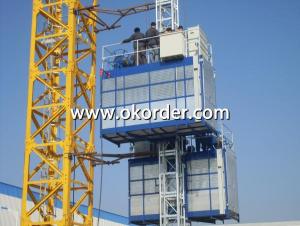Building Hoist SC100/100 Middle Speed Twin Cage
- Loading Port:
- China main port
- Payment Terms:
- TT or LC
- Min Order Qty:
- 1 unit
- Supply Capability:
- 30 unit/month
OKorder Service Pledge
OKorder Financial Service
You Might Also Like
Structure of Building Hoist Description
Feature: Building Hoist Condition: New Application: Construction
Payload(kg):2*1000 Lifting Speed(m/min):0~60 Motor Power(kw): 2*3*11
Safety Device: 2*SAJ30-1.4 Cage: Twin Counterweight: No
Certification: CE,ISO Place of Origin: China(Mainland) Model Number: Type:SC100/SC100
Packaging & Delivery of Building Hoist
Packaging Detail: Nude package Delivery Detail: 25-30days
Main Parts of Building Hoist
● Adopts the most advanced VF speed control device and microcomputer programmable logic controller.
● Stepless speed control helps eliminate the concussion during start up and braking, steady the operation process,
and ensures automated leveling.
● Adopts open loop V/Fcontrol; the speed control precision can reach ±2~3%. Realizes accurate low speed positioning of the hoist and avoid slipping during downward stopping of hoist.
● The VF system has current-restriction function, ensuring a small current when motor start up and reducing the concussion to power supply. It reduces the engery consumption and mitigates effects to on site electric equipments.
● The steadiness during running mitigates concussion to mechanical parts, reduces wears of rack, pinion and the brake
and prolongs the spare parts'life.
● The VF system also has the over voltage protection,low voltage protection, overcurrent, overload and anti-stalling protection functions,
● The system applies the special software for hoists developed by our company, making the operation more safe and
reliable.
Building Hoist Images
CMAX Building Hoist
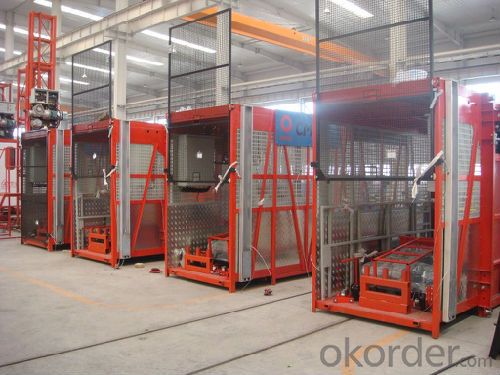
Mast Section
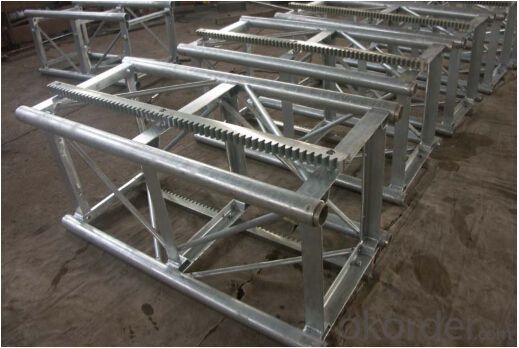
Driving Unit
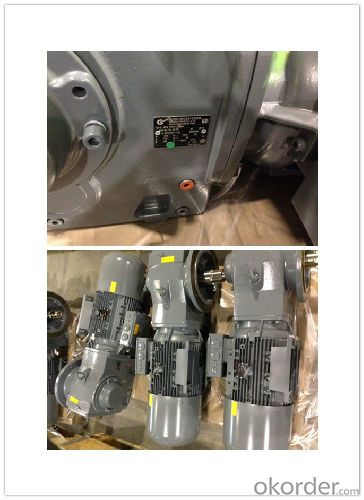
Building Hoist Specifiction
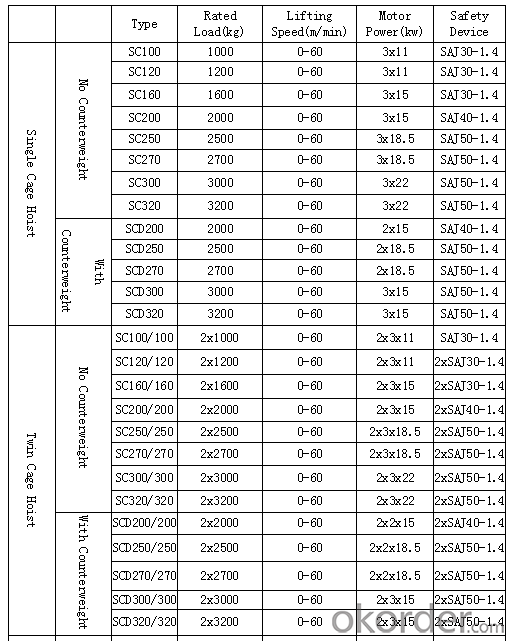
FAQ of Building Hoist
Q: What is the building hoist main purpose?
A: Building hoist equipped with double or single cabin to transport the materials and labors up and down. It's the ideal
construction equipment for vertical transportation in the field of construction.
Q: What is the main structure of building hoist?
A: The P/M construction hoist mainly contains metal structure, driving system, electrical control system, cable guide &
protection system, electrical top crane and safety device.
Q: What is the meaning of the building hoist’s code?
A: Take SC200/200 for example: “SC” stands for rack and pinion hoist, “200/200” stands for double cage and capacity
is 2 tons per cage. “SC200” stands for single cage and capacity is 2 tons.
Q: What is the dimension of the cage?
A: Normally the cage dimension is 3X1.5X2.5M (L/W/H) for 2t type hoist. Details should be checked according to our
quotation sheet. Also, the size can be customized according to the factual site condition. There are two doors (entrance
& exit doors) for each cage, It can be produced as up & down sliding or ramping model for safety and convenience.
- Q: What are the requirements for the construction elevator
- Actually good or bad for safety device can only judge by test and inspection in the daily operation is not sure whether it is good or bad, for those who are serving for safety device, or advice for the earlier inspection and regular test, only accomplish know fairly well, to malignant accident prevention rather than cure.
- Q: This question asks for a comparison between electric and manual lifting equipment, highlighting their distinct features and operational differences.
- <p>Electric lifting equipment, such as electric hoists and cranes, operates using electrical power and is designed for heavy-duty lifting and repetitive tasks. It offers high efficiency, ease of use, and often requires less physical effort from operators. On the other hand, manual lifting equipment, like levers, pulleys, and manual hoists, relies on human power and is typically used for lighter loads or in situations where electrical power is not available. Manual equipment is generally more portable and requires no power source, but it is slower and more labor-intensive. Electric equipment is more suitable for industrial settings, while manual equipment is often used in smaller-scale operations or for temporary tasks.</p>
- Q: Is there a specification requirement for the floor door of the elevator to the floor? How high
- The door locks must be in the direction of the elevator, and the people on the floor are not allowed to move at will, only the driver will be able to move. The other is that the height of the door must be 1.8 meters high, so that the workers' heads don't reach out to the danger.
- Q: The user is asking if it's possible to use a building hoist, typically used for construction, to lift a car.
- <p>Using a building hoist to lift a car is not recommended. Building hoists are designed for lifting materials and equipment in construction settings, not for vehicles. They may not have the appropriate safety features or load-bearing capacity for a car. Attempting to lift a car with a building hoist could result in damage to the car, the hoist, or even personal injury. For lifting a car, it's best to use a vehicle-specific lift or a hydraulic lift designed for such purposes, ensuring safety and proper support.</p>
- Q: A lift motor is 7.5 KW, and the frequency converter sends current 4.2 A, which has A heating resistance in the converter, and how the charge is calculated when the lift is full. Or consider the power of the converter and the power of the thermal resistance.
- The full load is 7.5 KW. The output current is 4.2 A, is the converter 7.5 KW?
- Q: This question asks for the method to determine the maximum weight that a building hoist can safely lift.
- <p>To calculate the weight limit of a building hoist, you must consider several factors: the hoist's mechanical capacity, the strength of the supporting structure, the load-bearing capacity of the cables or chains, and the safety regulations in place. Start by checking the manufacturer's specifications for the hoist's maximum load capacity. Then, ensure the hoist's supporting structure can withstand the weight and the force exerted during lifting. Inspect the cables or chains for any signs of wear and ensure they meet the required strength standards. Finally, adhere to local safety regulations, which often mandate a safety factor below the hoist's rated capacity to prevent overloading. Always consult with a professional engineer or the hoist manufacturer for precise calculations and safety guidelines.</p>
- Q: What precautions should be taken when operating a building hoist to ensure safety?
- <p>Safety measures for using a building hoist include ensuring the hoist is regularly inspected and maintained, following the manufacturer's guidelines. Operators must be trained and certified. Load limits must be strictly adhered to, and the hoist should not be overloaded. A safety cage or gate should be in place to prevent accidental falls. Emergency stop switches should be easily accessible. Regular inspections for wear and tear, especially on cables and hooks, are crucial. Never use a hoist if it shows signs of damage or malfunction. Always secure loads properly to prevent them from shifting during transport.</p>
- Q: Explain the distinctions between electric and electric-motorized building hoists.
- <p>Electric building hoists are powered by electricity and typically use a motor to lift and lower loads. They are designed for vertical transport of materials in construction settings. Electric-motorized hoists, on the other hand, are a specific type of electric hoist that emphasizes the use of an electric motor for operation. The primary difference lies in the level of automation and control. Electric-motorized hoists often have more advanced features like variable speed control and may be integrated into larger systems for automated material handling. Both are efficient, but electric-motorized hoists offer higher precision and control, making them suitable for more complex applications.</p>
- Q: Is it possible to use a building hoist for lifting lightweight items?
- <p>Yes, a building hoist can be used for lifting light objects, provided it is within the hoist's weight capacity. Building hoists are versatile and can handle various loads, but it's crucial to ensure the object's weight does not exceed the hoist's specified limit to maintain safety and prevent damage to the equipment. Always refer to the manufacturer's guidelines for the maximum load capacity and adhere to safety protocols when operating a building hoist.</p>
- Q: What is the meaning of double straps in the construction elevator?
- Used for heavy to offset the hoisting cage weight so as to realize energy-saving province electric hoist, by making use of the fixed pulley for heavy gravity into upward traction hanging basket of traction, so as to reduce the drive motor load, achieve energy saving.
Send your message to us
Building Hoist SC100/100 Middle Speed Twin Cage
- Loading Port:
- China main port
- Payment Terms:
- TT or LC
- Min Order Qty:
- 1 unit
- Supply Capability:
- 30 unit/month
OKorder Service Pledge
OKorder Financial Service
Similar products
Hot products
Hot Searches
Related keywords
